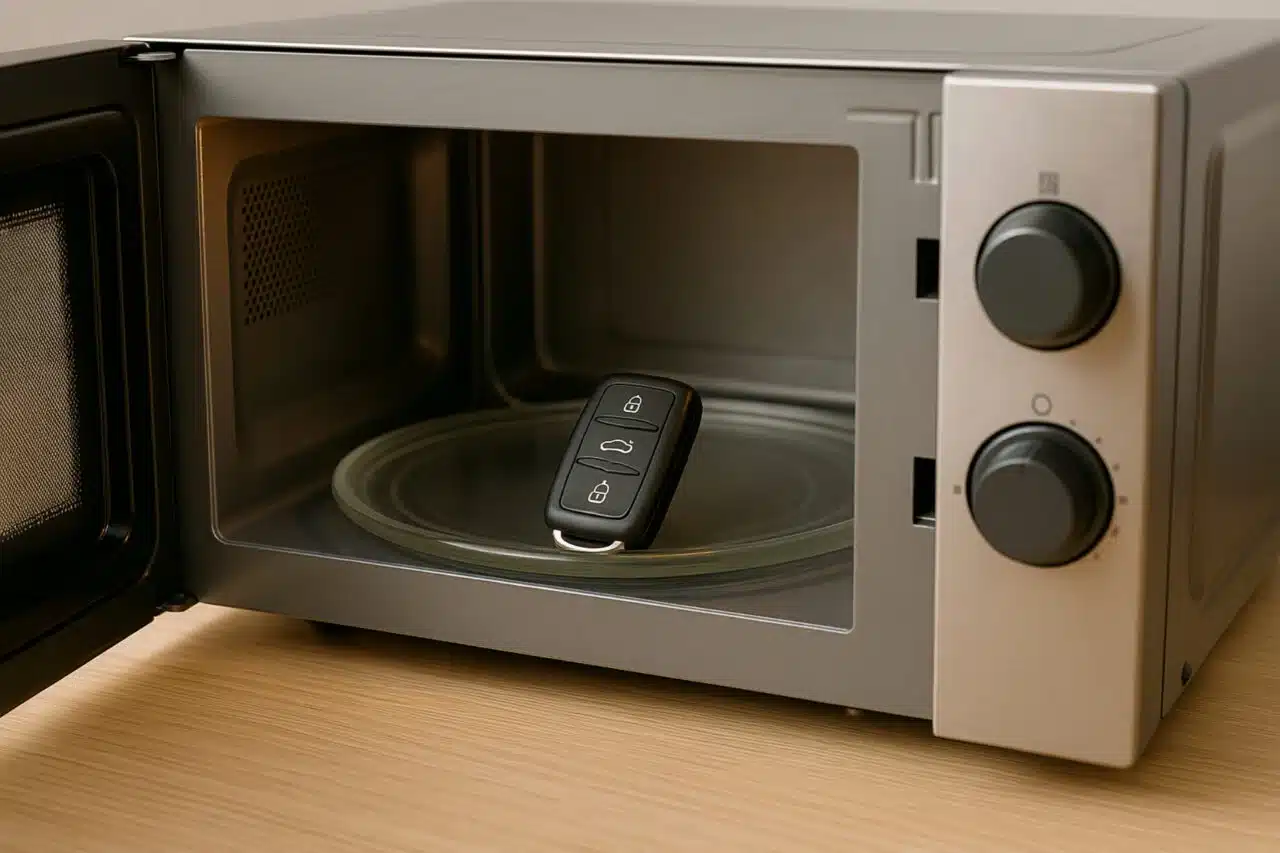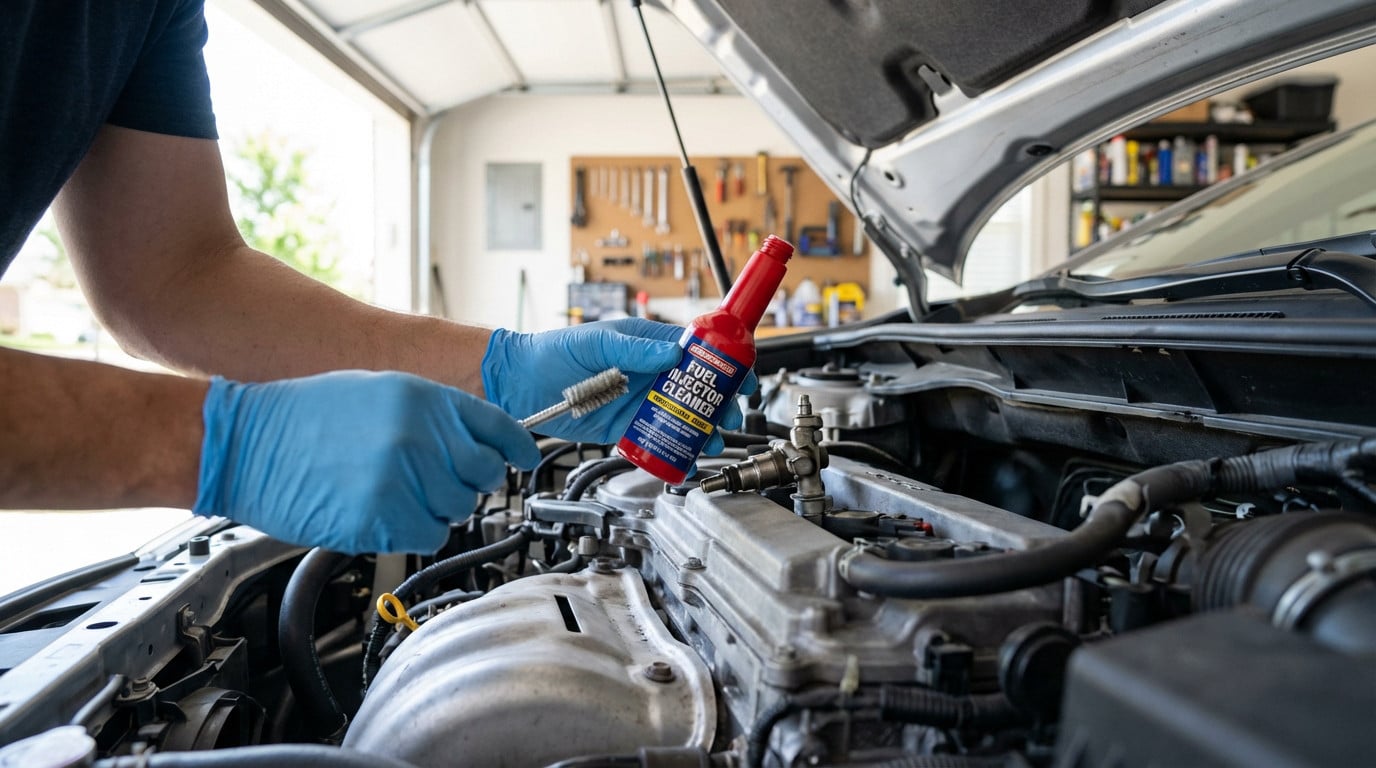For anyone concerned about vehicle security, especially with keyless entry systems, new risks seem to appear overnight. Electronic car keys are now a favorite target for tech-savvy thieves using advanced tools. One widely discussed tip is to store car keys in the microwave overnight to prevent theft. But how effective and safe is this advice? Taking a closer look at preventing keyless car theft, understanding the fire hazard and safety risks, and exploring smarter alternatives can offer peace of mind.
How do car thieves exploit electronic keys?
Keyless entry brings convenience but also introduces specific vulnerabilities. Criminals no longer need physical force if they can use technology against unsuspecting owners. Understanding these modern tactics makes it easier to adopt practical security measures.
Relay attacks and signal amplifiers: What’s the real threat?
Thieves have learned that signals from car key fobs—especially those with proximity unlock or push-button start—can be intercepted using RF amplifiers. These devices capture and relay the wireless communication between a key and the car. Typically, one thief stands near the house, collecting the weak signal from inside, while an accomplice uses it near the car to trick the vehicle into unlocking. This technique, known as a relay attack, allows criminals to drive away without any sign of forced entry.
This reality means it is crucial not only to consider where keys are left physically, but also to block the key fob signal digitally. As such methods become more common, simply hiding keys or ignoring the issue does little to deter sophisticated theft attempts.
Electronic shielding: How does it prevent keyless car theft?
Preventing relay attacks revolves around cutting off the connection between key fobs and would-be thieves. This is where electromagnetic shielding comes into play. A properly shielded box or pouch surrounds the key, ensuring that even determined criminals cannot amplify its signal.
The concept is straightforward: stop the wireless link at its source. Many seek affordable ways to create this barrier at home, hoping to protect their vehicles overnight with minimal hassle.
Microwave as Faraday cage: Is this approach practical?
At first glance, putting car keys in a microwave may sound odd. Yet, there is scientific reasoning behind it—microwaves can act as makeshift Faraday cages, blocking electromagnetic waves. Some security specialists have promoted this tip during public awareness campaigns, sparking curiosity among drivers.
How microwaves block RF signals
A microwave oven’s metal body and mesh door are designed to contain radiation, which also blocks radio frequencies emitted by key fobs. Placing keys inside interrupts outside interference and can stop car thieves using amplifiers or relay devices.
This method works similarly to professional electromagnetic shields found in labs. However, effectiveness depends on the appliance’s condition; old or damaged microwaves may not provide complete radio frequency shielding.
Fire hazard and safety risks: Why caution matters
Despite its cleverness, storing keys in a microwave raises serious concerns. Microwaves are not intended for use as safes and placing valuables inside poses risks if someone accidentally turns the appliance on. Such accidents can cause serious fire hazards and lead to significant damage to car keys or key fobs—not to mention endangering the kitchen.
Stories of people forgetting keys in microwaves and later activating the appliance are frequent on consumer forums. Electronics inside a running microwave can spark and ignite quickly. For this reason, this practice is not recommended by experts focused on safety and electronics longevity.
Alternative signal-blocking methods: What options exist?
While a microwave can temporarily block signals, safer and more reliable solutions exist for daily protection. Exploring alternatives helps balance convenience, durability, and genuine security.
Metal containers and old-fashioned tricks
An airtight metal box or cookie tin offers a simple, practical solution without the risks associated with appliances. Most metal enclosures provide enough padding to block unauthorized scanning or boosting of key signals. They are affordable, reusable, portable, and deliver solid electromagnetic/radio frequency shielding for everyday use.
Some resort to wrapping keys in aluminum foil overnight—a quick fix that creates a basic shield. Though not as robust as commercial products, it provides an accessible way to minimize risk.
Faraday pouches and purpose-built sleeves
Faraday pouches are designed specifically to block electronic signals. Using layers of conductive fabric, these compact and affordable bags ensure all signals are blocked when the key is inside, protecting against both casual snoopers and determined criminals.
These pouches are easy to use and require no home modifications. With growing availability and low prices, they suit nearly every need and key type, making them a popular choice for consistent security.
- Store car keys in a purpose-built Faraday pouch both at home and while traveling.
- If using a household container, test its ability to block signals before relying on it.
- Avoid regular use of the microwave or refrigerator; instead, dedicate a metal box for secure daily storage.
- Never forget keys in the microwave to prevent electrical fires or other safety risks.
- Educate others about relay attacks and encourage protective habits in the community.








